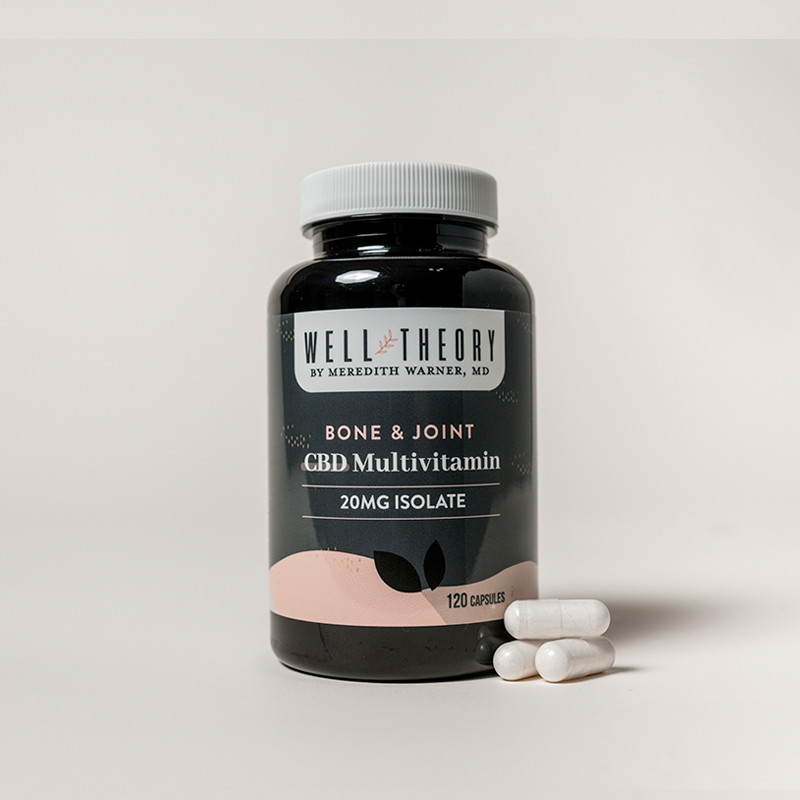
What Is Oxidative Stress?
Hi, Dr. Meredith Warner here-
Today, I’d like to talk about oxidative stress – what it is, and how it affects your health. A lot of foods, supplements, and more are advertised as “antioxidants,” but there can be some confusion on what it means, and on how antioxidant foods and vitamins can benefit your overall well-being.
Basically, oxidative stress is an imbalance of free radicals and antioxidants in the body, which may lead to tissue and cell damage. Oxidative stress is a naturally occurring phenomenon behind your body’s natural aging process - but certain foods and lifestyle choices can “speed up” this process.
Stress is placed on your system and your DNA by too much of the by-product of cellular metabolism; stress is caused by an overproduction of free radicals.
HOW OXIDATIVE STRESS OCCURS AND WHY YOU SHOULD PREVENT IT
Oxidation is what happens when your body metabolizes oxygen to use in its natural processes – such as converting oxygen to energy, when your body is fighting off infection, etc.
Free radicals are atoms that are released from oxygen molecules that you inhale. As oxygen is broken down and used by the body, the molecule splits into single atoms with unpaired electrons. These atoms scavenge the body in search of another electron with which to pair.
Electrons like to be in pairs, so these atoms, called free radicals, scavenge the body to seek out other electrons so they can become a pair. This causes damage to cells, proteins and DNA. In fact, free radicals are known to directly impair DNA and cell membranes. Other sources of free radicals beyond cellular energy production are cigarettes, air pollution and chemicals in our lives.
A large body of medical and scientific research has linked oxidative stress to the development of certain conditions – such as cancer, heart disease, and diabetes.
We now believe that most so-called ‘lifestyle’ diseases are directly linked to chronic inflammation and the resulting oxidative stress. Sadly, aging itself is defined as an accumulation of free radical damage.
The good news is that your cells also produce antioxidants that can neutralize these free radicals and maintain balance. However, certain factors can impact your body’s abilities to produce antioxidants, such as:
- Dietary choices
- Lifestyle decisions
- Exercise
- Environmental conditions, like pollution, low air quality, etc.
HOW OXIDATIVE STRESS HURTS YOUR BODY AND HOW TO PREVENT IT
Oxidative stress is also the phenomenon behind your body’s immune response. Your natural immune response causes swelling at the site of injury to surround the wound – then, natural killer cells and other components of the immune system will provide proteins that denature and destroy the invading molecule or damaged cells that need to be removed.
This, of course, produces oxidative stress. The process of the innate immune system naturally produces both oxidative stress and inflammation but is designed to quickly recede after your immune system fights off an infection or repairs a wound.
However, uncontrolled oxidative stress can harm your body. Many of us lack the ability to have a properly functioning immune system and healing and recovery system. For example, inflammation can be a good thing in appropriate amounts – but inflammatory conditions, such as arthritis, can be painful and negatively impact your overall well-being.
Thankfully, with some small lifestyle changes, you can greatly reduce the amount of free radicals wreaking havoc on your body and maintain your health. Here’s how:
First, you can make sure that you’re getting enough antioxidants in your diet. Getting a healthy amount of fruits and vegetables in your diet can give your body antioxidant phytochemicals and also what it needs to produce antioxidants – and some fruits also contain very high levels of antioxidants and will provide a strong antioxidant effect.
Usually the more colorful the fruit the stronger the antioxidant abilities. Incorporate some of these fruits into your diet:
- Cherries
- Berries
- Citrus
- Prunes
- Leafy greens
- Broccoli
Read More: All about Flavonoids
Certain vitamins and other foods can help your body produce antioxidants as well. Fish and nuts, vitamin E and C, and even spices like garlic, cinnamon, and turmeric are all great things to incorporate into your diet for a powerful antioxidant effect.
CHOOSE WELL THEORY SUPPLEMENT YOUR WAY TO BETTER HEALTH
CBD is a powerful antioxidant – even more so than Vitamin C or E. Our CBD Multivitamin contains all the essential nutrients your body needs to function optimally – with CBD for a powerful antioxidant, anti-inflammatory effect, plus vitamins C for an added boost.
ABOUT THE AUTHOR
Dr. Meredith Warner is the creator of Well Theory and The Healing Sole. She is a board-certified Orthopedic Surgeon and Air Force Veteran.
She is on a mission to disrupt traditional medicine practices and promote betterment physically, spiritually and mentally to many more people. She advocates for wellness and functional health over big pharma so more people can age vibrantly with more function and less pain.
At Well Theory, Our surgeon-designed products are FDA Registered and formulated to help people:
- Manage the symptoms of musculoskeletal pain
- Recover vibrantly from orthopedic related surgeries
- Fill the gaps in our daily diets
- Manage pain associated with inflammation





